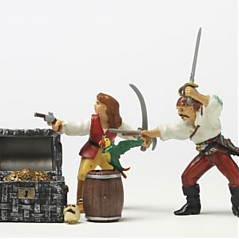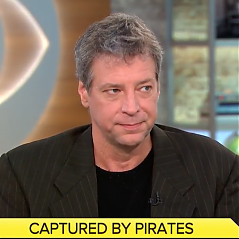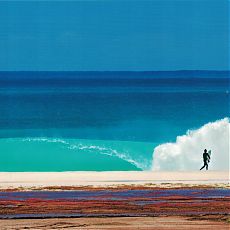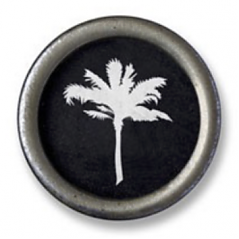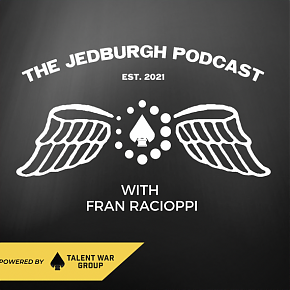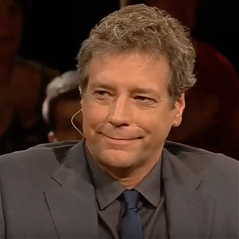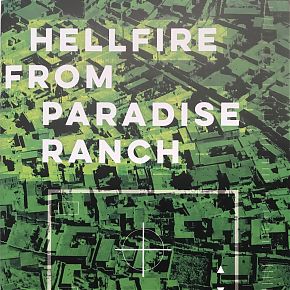The Invention of Love
Stoppard U.S.-premiered his play in San Francisco
SF Weekly
January 2000
The last time one of Tom Stoppard’s plays had its American premiere in San Francisco, last spring, I wrote that it “wouldn’t be above Stoppard to spin a whole script around a minor and meaningless point of grammar.” My point was that the theater world’s favorite established avant-garde playwright has a pedantic streak worthy of an Oxford professor, although he skipped college altogether in the ’60s. His new play, The Invention of Love, bears me out beautifully. It’s about Oxford classicists, for one thing; some of them even decline Latin verbs onstage. But the crucial difference between this play and last year’s Indian Ink is that pedanticism doesn’t drive the plot. And this production has enough fine acting in it to make the show a rare thing in theater — a lavish, well-controlled dream.
It starts with A.E. Housman on the river Styx. Charon floats across a stage made gloomy under turning, watery light. He thinks he’s looking for two men, “a poet and a scholar,” but Housman is both. By his death in 1936, he was considered the best classical scholar in England; during the 1890s, as a clerk in a patent office, he also published The Shropshire Lad, a landmark book of poems which betray his quiet passion for Moses Jackson, one of Housman’s Oxford chums. Since the 1890s were also the setting in England for Oscar Wilde’s rise and fall — his flamboyant Aestheticism, his open homosexuality — the play becomes not just a memory play of Housman’s closeted affections but also a drama of tweedy tradition vs. the colorful burgeoning twentieth century. “I lived at the turning point of the world where everything was waking up new,” Wilde says in a powerful speech to Housman, “— the New Drama, the New Novel, New Journalism, New Hedonism, New Paganism, even the New Woman. Where were you when all this was happening?”
“At home,” says Housman.
In real life the two of them probably never met, but they did share a year at Oxford, and Stoppard has fun making references to Wilde’s scandalous mots and pranks in the scenes from Housman’s youth. It turns out that the young and brilliant Housman was not completely un-Romantic. As a meticulous student of Latin and Greek he disparages Wilde’s reckless behavior and velvet clothes, but at the end of four years he also fails his exit exams and takes the humble patent-office job. “You were cleverer than any of us, Hous!” Moses says, incredulous that his friend could have thrown off a career as a professor. “But here we are, you and I,” answers Housman, “we eat the same meals in the same digs, catch the same train to work in the same office, I’ve got time to do classics…”
It ain’t velvet knickers, but it’s something.
The play meanders through abstruse arguments about Latin and Greek, silly professors playing croquet, back-room conversations among smoking journalists, Moses’ track meets, and rowing excursions on the Styx and Thames. It’s slow going, especially if you haven’t read the script. A woman sitting next to me fell asleep three times during the first act. But under all the surface stodginess is a quietly urgent love story, a summing-up of a life.
Jason Butler Harner does a flawless and energetic job as the young Housman, full of ambition and repressed passion that comes out as nervous acrimony toward other classical scholars. James Cromwell is the stately but sad Housman at seventy-seven, the year of his death, reserved and wistful and only slightly less acrimonious. Whenever the two of them meet, in Stoppard’s shadow-world of memory, the play catches fire. The elder Housman would like to inform his younger self that reading classical authors isn’t the pinnacle of experience it seems to the talented student; he wants to turn the narrow enthusiastic boy’s attention toward life itself.
Marco Barricelli’s Oscar Wilde wakes up the theater with his pompous phrasemaking and colorful clothes, mincing around with a lily in his hand or lazing with a book of Housman’s poems in the paper-lamp-and-streamer wreckage of a Jubilee. “Forgive me,” he says, “I’m somewhat the worse for — cake,” and we know he doesn’t mean cake. By the time Housman meets him in the play Wilde has been disgraced as a sodomite. But he’s defiant: “I made my life into my art and it was an unqualified success,” he says. “I banged Ruskin’s and Pater’s heads together, and from the moral severity of one and the aesthetic soul of the other I made art a philosophy that can look the twentieth century in the eye. I had genius, brilliancy, daring, I took charge of my own myth.” He swaggers pompously, and the speech gives Barricelli the chance to be catty, sensitive, and diabolically proud all at once.
Ruskin and Pater are two Oxford professors famous to history as critics; in the show they’re played by Ken Ruta and Michael Santo. Ruta also does a colorful, salty job as Henry Labouchère, a journalist and Member of Parliament, and Santo is funny as his Irish colleague, W.T. Stead. (“Is it true you caught a mouse in the Gazette office and ate it on toast?” “Perfectly true,” says Stead.) ACT casts tend to be solid at the core but loose around the edges; this one is strong on every level. The only disappointment is Steven Anthony Jones, who’s miscast as Charon. Jones does well in loud and hearty roles like Mr. Peachum in Threepenny Opera, but as the shrouded ferryman on the Styx he has too much enthusiasm, bellowing mordantly witty comments to the second balcony.
The Invention of Love resonates along a half-dozen layers of meaning; Stoppard nests puns in his scenes as well as in his dialogue. Wilde appears not just as Wilde but also as Bunthorne, a Gilbert and Sullivan character based on Wilde; Housman’s school friends row a boat along a river that could be the Styx or the Thames, and morph into the characters of Jerome K. Jerome’s Three Men in a Boat (to Say Nothing of the Dog). Who was Jerome? Well, he was the future: one of the London wits who owed his new, humorous style to Wilde. These bits of trivia don’t drive the story — you don’t need to know them — but Carey Perloff’s production pays attention to their nuances, and the result is a quietly powerful show.
Michael Scott Moore
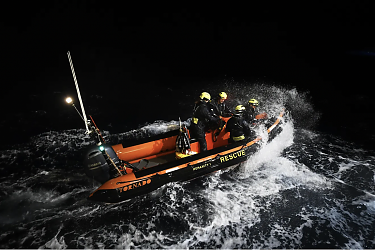
Rafts of the Medusa
Why every day on the Mediterranean is a new scandal for Europe. For both Foreign Policy and Die Zeit.
California’s Attempt at Land Reparations
How land seized from a Black family 100 years ago may be returned. The Bruce’s Beach story from a hometown angle, for The New Yorker
Day of the Oprichnik, 16 Years Later
The novelist Sorokin, the president Putin, his man Dugin, and the war in Ukraine. For n + 1.
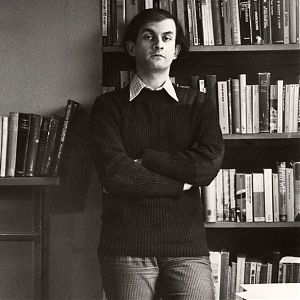
The Rushdie Narrative
Knife and the crumbling ground beneath free speech
There Must Be Some Way Out of Here
An essay on Bob Dylan, “All Along the Watchtower,” and Somali pirate captivity.
That Mystic Shit
The life of Lou Reed in two biographies

Cambodian Seafarers Talk About Pirates
Mike visits Cambodia for The New Yorker to talk about a harrowing shared experience in Somalia
The Muslim Burial
Cambodian hostages remember digging a grave for one of their own. A sequel chapter to The Desert and the Sea
The Real Pirates of the Caribbean
Adventure journalism in Southern California. A travel essay for The Paris Review.

Antifa Dust
An essay on anti-fascism in Europe and the U.S., for the Los Angeles Review of Books
Was Hitler a Man of the Left?
A book that helped Republicans in America lose their damn minds.
Ghosts of Dresden
The Allied firebombing of Dresden in 1945 destroyed the baroque center of what Pfc. Kurt Vonnegut called, in a letter home from Germany, “possibly the world’s most beautiful city.”
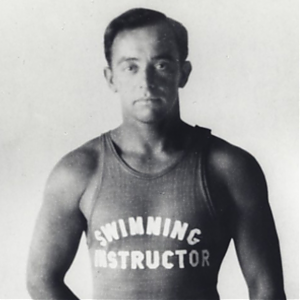
George Freeth, Biographed
The first academic treatment of America’s surf pioneer. Also, was Freeth gay?
It’s Called Soccer
Americans live on what amounts to an enormous island, defended on two shores by the sea, and we’ve evolved a few marsupial traditions that nobody else understands.
Tilting at Turbines (in the Severn River)
The morning was clear and cold, with frost on the church steeple and the cemetery grass. I had a quick English breakfast at a white-cloth table, in my wetsuit, and drove to Newnham, a village on the Severn River in Gloucestershire, parking near the White Hart Inn.

The Curse of El Rojo
I’d packed the car lightly — a bag of clothes, a bag of cassette tapes, a backpack of books, a few essential tools.













